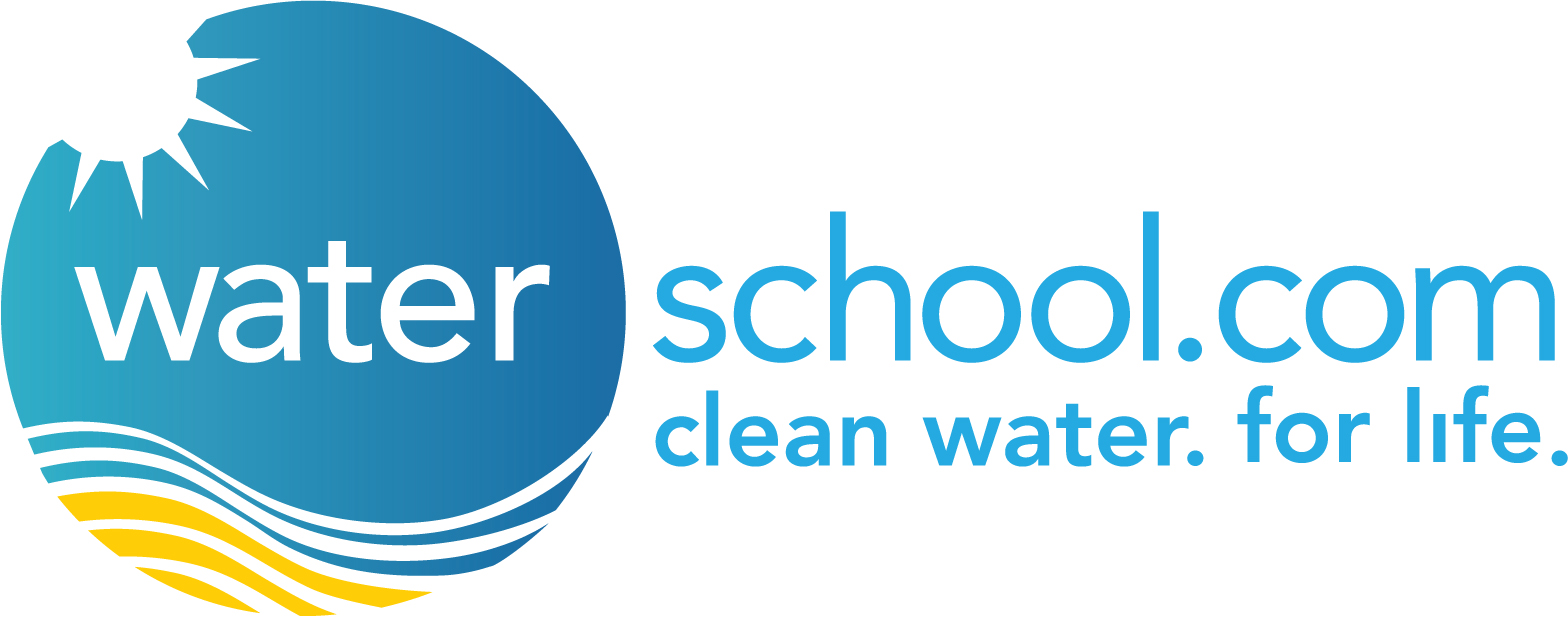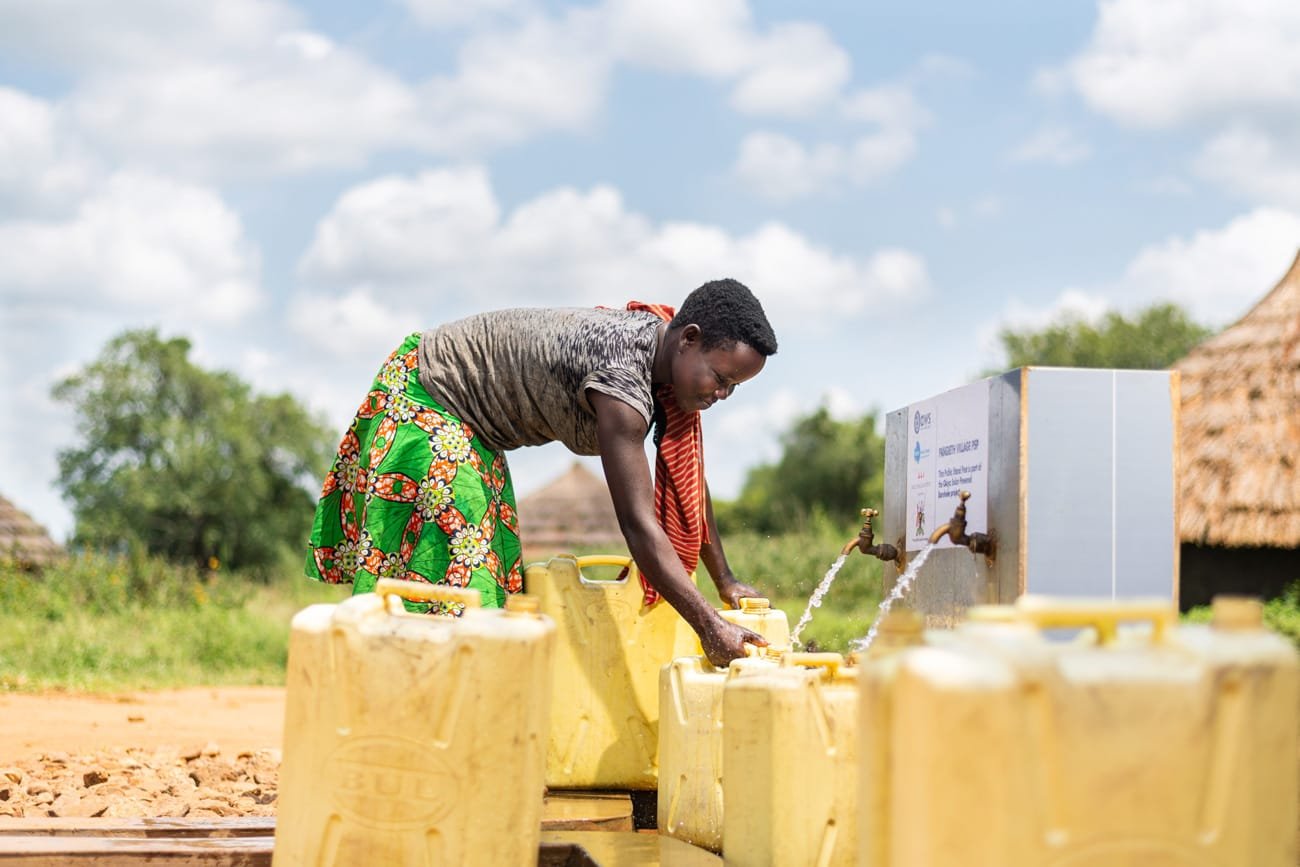The Impact of Clean Water
Over the years, we have carefully tracked the incidence of waterborne diseases among the communities we partner with. When it comes to waterborne illness, whether or not a household has experienced diarrhea in the past month is a key indicator of whether or not our Water, Hygiene and Sanitation (W.A.S.H.) efforts are effective.
Over the past three years, we have seen a 96.6% reduction in diarrhea across the households we partner with.
2021: 12,000 households experienced a 97% decline in the incidence of diarrhea
2022: 13,500 households experienced a 97% decline in the incidence of diarrhea
2023: 16,500 households experienced a 96% decline in the incidence of diarrhea
Bujwaala Primary School
In 2021, we built a rain-water harvesting tank at the Bujwaala Primary School and ran extensive SODIS, hygiene, and sanitation training for the teachers and for the students. We also built a Menstrual Hygiene Management Room to provide privacy and basic materials like reusable pads for young women to manage their periods safely.
“The girls no longer spend nights collecting water; they can now enroll in classes, stay in school, learn and achieve their dreams. We have reduced the number of children falling sick from waterborne diseases because we now have usable latrines, hand washing points with soap and safe water - either from our rainwater collection tanks or from SODIS." - James Asakina, the Head Teacher at Bujwaala Primary School
Okiya
In some parts of Uganda, surface water isn’t available all year long. The rainy season brings months of rain that fill the valleys, ponds and watering holes, but when it stops, the dry season lasts for months. These water sources can dry out before the rains return. The people and animals in these regions suffer greatly without water. And SODIS is only effective if people can find water to fill bottles and jerry cans.
In these places the WaterSchool team has implemented rainwater catchment tanks or in some cases boreholes dug into the earth to access underground springs.
In Okiya, WaterSchool dug a borehole in 2021 that transformed life for all 2,500 residents, from the youngest to the oldest community members.
“People now have access to clean water that they can access on their own time. The water is so much closer to them...People now have time to invest in other areas — time they used to spend looking for water.” — Robert Odiya, Chairperson Alwi Subcounty
Mawero Primary School
In many of the communities we serve, the arrival of a girl’s period can keep her from receiving the education she deserves. It can even cause her to drop out of school. Without access to clean and effective pads, facilities to change, safe ways to wash or dispose of pads, and access to soap and clean water to clean up and wash their hands, managing their periods at school can be an overwhelming challenge.
WaterSchool has brought our unique approach to providing clean water into schools and is a trusted partner. To reduce girls’ embarrassment, fear, anxiety and distraction at school, WaterSchool has gone one step further to also provide dedicated rooms stocked with reusable pads, painkillers and hygiene products to ensure that girls can stay in school. Period.
“We no longer have to send girls home during periods as everything needed for them to safely manage their periods is available in the MHM room. Girls are able to bathe and change in the room and also rest when they are in pain. I have appointed a Primary 6 pupil as a chief coordinator for the room so she’s able to help out whether I am there cannot be.”
— Miss Nakyewa - Senior Teacher
Ecwaku & Family
Without understanding why clean water and good sanitation and hygiene practices are important, Ecwaku, her husband and her children were living with regular bouts of diarrhea and most of the family had worms. Thinking that it was bad luck or witchcraft, the family spent lots of their money on witch doctors who promised to alleviate their suffering.
“With WaterSchool we learned how to keep our family healthy. Together we did trainings and constructed a pit latrine, a tippy tap for us to wash our hands and a rack for us to lay our plastic bottles of dirty water in the sun to purify the water.” - Ecwaku, mother in Soroti







